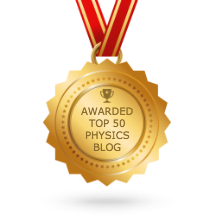 |
| The Feynman Lectures on Physics, by Richard Feynman. |
These are the lectures in physics that I gave last year and the year before to the freshman and sophomore classes at Caltech. The lectures are, of course, not verbatim—they have been edited, sometimes extensively and sometimes less so. The lectures form only part of the complete course. The whole group of 180 students gathered in a big lecture room twice a week to hear these lectures and then they broke up into small groups of 15 to 20 students in recitation sections under the guidance of a teaching assistant. In addition, there was a laboratory section once a week.Although written for freshman and sophomores, most physics students read The Feynman Lectures a bit later in their education. I recall reading them the summer between graduation from the University of Kansas and starting graduate school at Vanderbilt University. There is some biological and medical physics in the lectures. For instance, Chapters 35 and 36 of Volume 1 are about vision and the eye. In Chapter 3 (The Relation of Physics to Other Subjects), Feynman describes his reductionist point of view about biology:
Certainly no subject or field is making more progress on so many fronts at the present moment, than biology, and if we were to name the most powerful assumption of all, which leads one on and on in an attempt to understand life, it is that all things are made of atoms, and that everything that living things do can be understood in terms of jigglings and wigglings of atoms.And in Volume 2 (Chapter 1), Feynman had this to say about the impact of electricity and magnetism on life:
Now we realize that the phenomena of chemical interaction and, ultimately, of life itself are to be understood in terms of electromagnetism.He closed that chapter with a favorite quote of mine:
From a long view of the history of mankind—seen from, say, ten thousand years from now—there can be little doubt that the most significant event of the 19th century will be judged as Maxwell’s discovery of the laws of electrodynamics. The American Civil War will pale into provincial insignificance in comparison with this important scientific event of the same decade.Anyone wondering what to get an aspiring physicist for a holiday gift might want to consider The Feynman Lectures. If you are looking for lighter reading, I suggest two autobiographical books by Feynman: Surely You’re Joking Mr. Feynman, and What Do You Care What Other People Think? They’re delightful and hilarious.



No comments:
Post a Comment